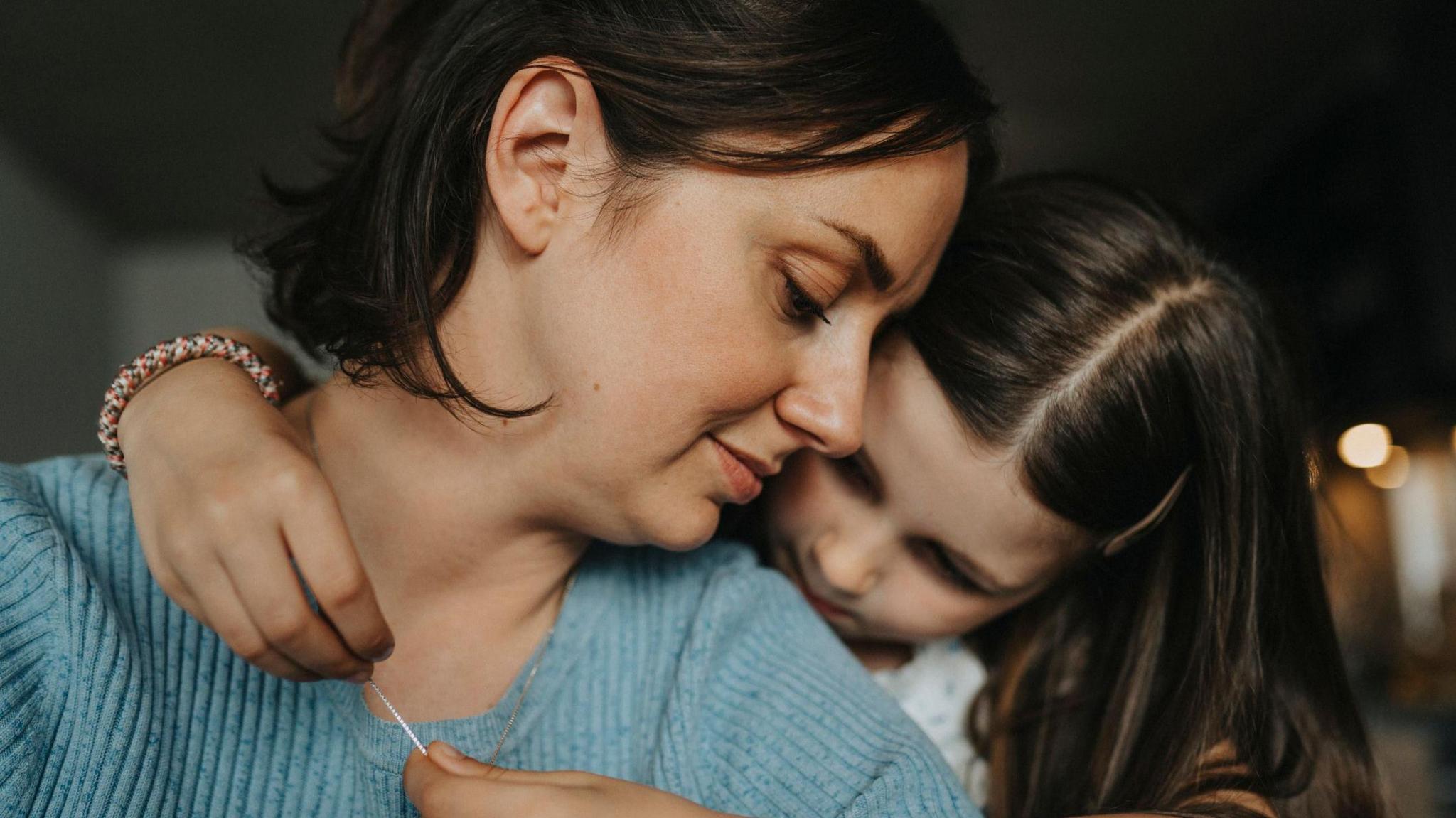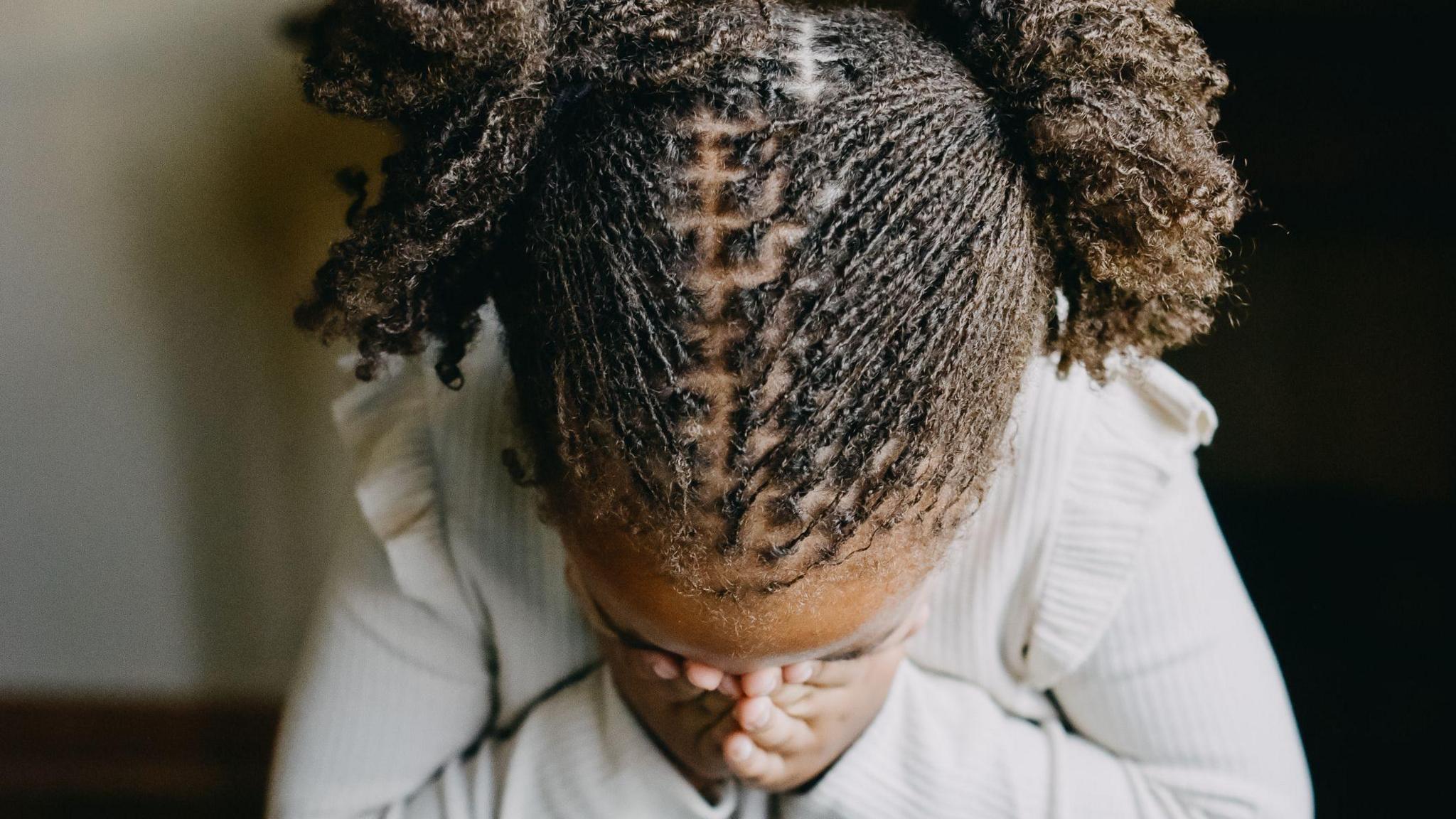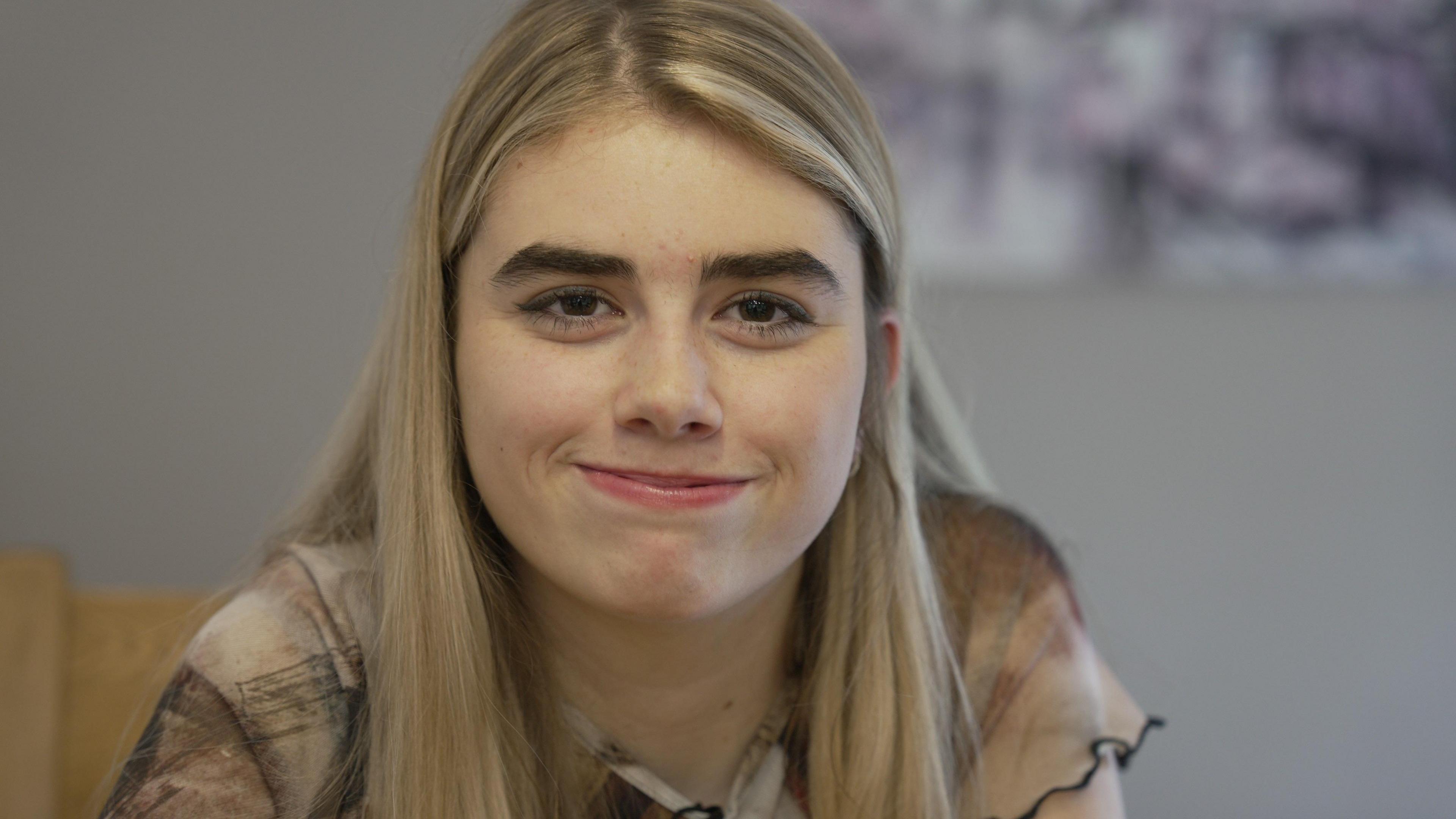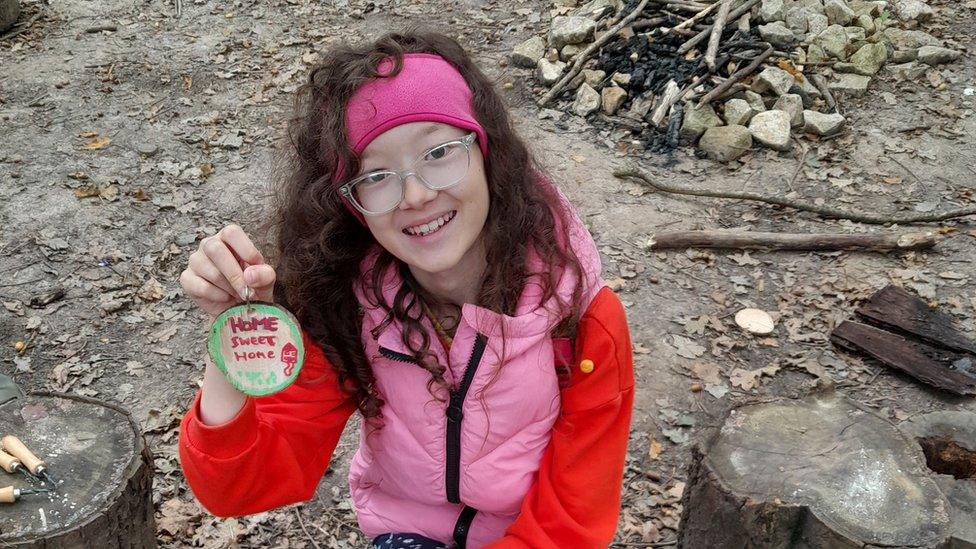'My daughter spoke to us but no-one else'

An expert tells BBC Radio Solent selective mutism is an "anxiety-based condition"(stock image)
- Published
"Her pre-school worker told us at the first parents' morning a few weeks after she'd started that she'd never spoken to anyone there."
It was the first time Zac and his partner had ever heard of selective mutism (SM), although they did not know what it was yet.
He said his daughter would talk at their Hampshire home - so it was only after reading about the condition online that they realised their daughter might have it.
"We were first aware of issues at around age two when we'd take her to toddler activities and she'd clam up and not really participate," Zac said.
Lucy Nathanson is a child therapist and selective mutism specialist.
Speaking alongside Zac on BBC Radio Solent she described it as an "anxiety-based condition".
"Children can talk completely freely when they're comfortable, but they're unable to talk in other situations," she said.
She said a home-setting with family might be "comfortable" for a child but at school and in social situations where they feel uncomfortable they would go mute.
"One of the key misconceptions that we see is people assume that children with SM are just shy and this can lead to people maybe waiting for the child to outgrow it, which is a real mistake," she said.
"We don't want a child to just outgrow SM by themselves they really do need support as early as possible."

Zac said his family were given advice from NHS Speech and Language therapists (stock image)
Zac's daughter also became unable to talk to her extended family, grandparents, aunts, uncles and also other children, which only became worse when Covid hit.
He said: "The anxiety was severe - my daughter couldn't speak, couldn't go to the toilet, couldn't eat her lunch, couldn't participate in any of the school activities or school work."
Zac said they were given advice from NHS Speech and Language therapists but felt they needed practical help.
He said they tried a private therapist "who didn't really seem to know what to do".
Then they met Mrs Nathanson, who spent four successive half days with his daughter at school.
'Take early action'
"I'm still not quite sure how she did it," Zac said.
"You're spending day after day for literally years... and then a professional goes in and a day or two later my daughter is speaking in class to the teachers and peers, answering the register, telling jokes to the head teacher."
Mrs Nathanson stresses that SM is not just about not talking, it can also be about not participating, and every child needs individualised techniques and strategies for treatment.
"But at the same time there are lots of things that we can do to help children with SM to feel as comfortable as possible and to set them up for success," she said.
Zac says that for now, after more than five years, his daughter's SM has all but gone away.
"She plays cello - including performances to big audiences - goes to Stagecoach drama and is completely fine in school," he said.
"As a parent you wonder if there was anything you did... what's important is to be aware of the condition, know how to recognise it early and to take early action."
Get in touch
Do you have a story BBC Hampshire & Isle of Wight should cover?
You can follow BBC Hampshire & Isle of Wight on Facebook, external, X (Twitter), external, or Instagram, external.
Related topics
- Published28 October 2024

- Published17 March 2024
